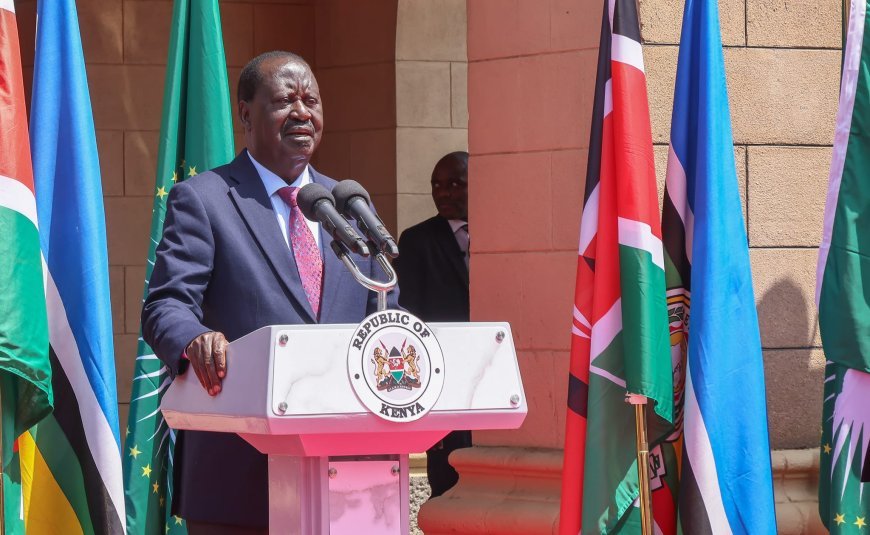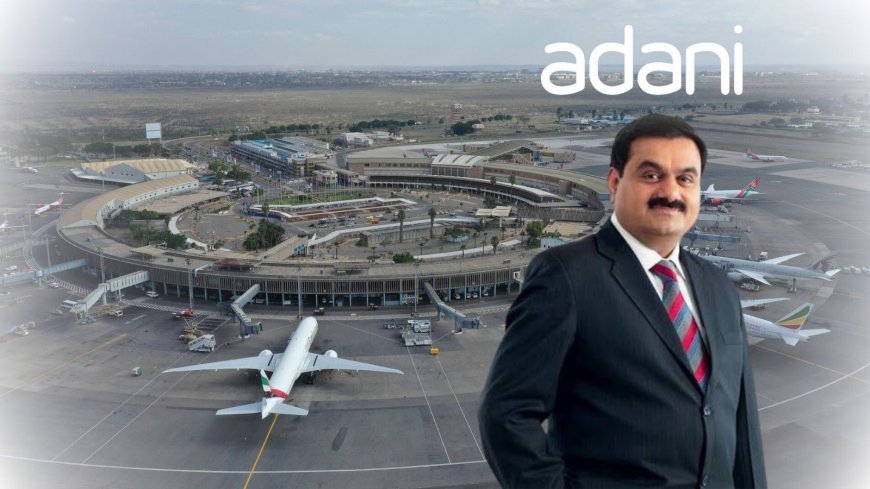Raila Terms Collapse Of Adani-JKIA Deal As Blow To Kenyan Aviation
Odinga reflected on the long-running struggles surrounding the multi-billion-shilling airport expansion project.

Former Prime Minister Raila Odinga has expressed regret over the failure of the proposed Adani airport deal at Jomo Kenyatta International Airport (JKIA), describing it as a "major disappointment" that has undercut Kenya’s chances of becoming a leading aviation hub in Africa.
Speaking at the Cabinet retreat in Karen on its second day on Friday, June 20, Odinga reflected on the long-running struggles surrounding the multi-billion-shilling airport expansion project.
He noted that a series of cancellations — including the latest involving India’s Adani Group — had not only stalled Kenya’s infrastructure progress but also allowed regional rivals like Ethiopia and Rwanda to take the lead in aviation development.
“Kenya can become a hub, a big hub. I was very disappointed when we were not able to move on with the airport contract. That was very unfortunate,” he said.

A collage of the Jomo Kenyatta International Airport (JKIA) (background) and the chairman of Adani Group, Gautam Adani. /VIRAL TEA KE
The original Greenfield Terminal project, aimed at boosting JKIA’s capacity for passenger and cargo traffic, was initially awarded in 2012 to the Chinese company CATIC and a Canadian consortium from Quebec during the Grand Coalition Government, when Raila Odinga was Prime Minister.
However, the government abruptly scrapped the deal in 2016, citing issues related to cost and the project’s overall viability.
“You know, we had awarded the Greenfield airport contract before we left government with Quebec in 2012. That contract was cancelled. Then it was given again to the same contractor later, but again cancelled somewhere because of disagreements in the middle,” Odinga explained.
In 2023, the government brought back plans to significantly expand JKIA through a public-private partnership with India’s largest airport operator, the Adani Group.
President William Ruto’s administration promoted the deal as a key step toward making Nairobi a central hub for regional transport and logistics. However, the agreement was eventually scrapped amid growing political pushback and public unease over issues of transparency and potential geopolitical consequences.
“When we now brought in the Adani, they brought all this politics, and then the contract was cancelled. If that is not done, Nairobi has become dormant,” Odinga noted.
Odinga highlighted progress in Ethiopia and Rwanda as signs that these countries are surpassing Kenya in terms of aviation infrastructure.
He also referenced the UAE, noting how its national airline, Emirates, functions as a strategic economic driver for the country rather than focusing solely on profits.
“Look at Addis Ababa. It’s going, and now they’re putting up a big new airport. So, Addis Ababa is going to be the hub for Ethiopian Airlines. It’s the dominant airline now on the continent. Kenya Airways can do the same… but we are not doing it,” he lamented.
“People in the Emirates do not look at the airline for making profits. It’s basically a vehicle bringing investors, tourists, and shoppers to the Emirates. You can be making losses so long as you’re bringing people to our country."
President Ruto in November 2024 ordered the termination of infrastructure and energy agreements involving Indian billionaire Gautam Adani after criminal charges were filed in the United States.
Ruto announced that the Public-Private Partnership (PPP) for expanding JKIA and a separate deal with the Kenya Electricity Transmission Company Limited (KETRACO) were both scrapped in light of earlier developments.
The U.S. Department of Justice indicted Adani and his nephew, Sagar Adani, accusing them of running a bribery scheme that allegedly paid over $250 million to Indian officials to secure solar energy contracts.







